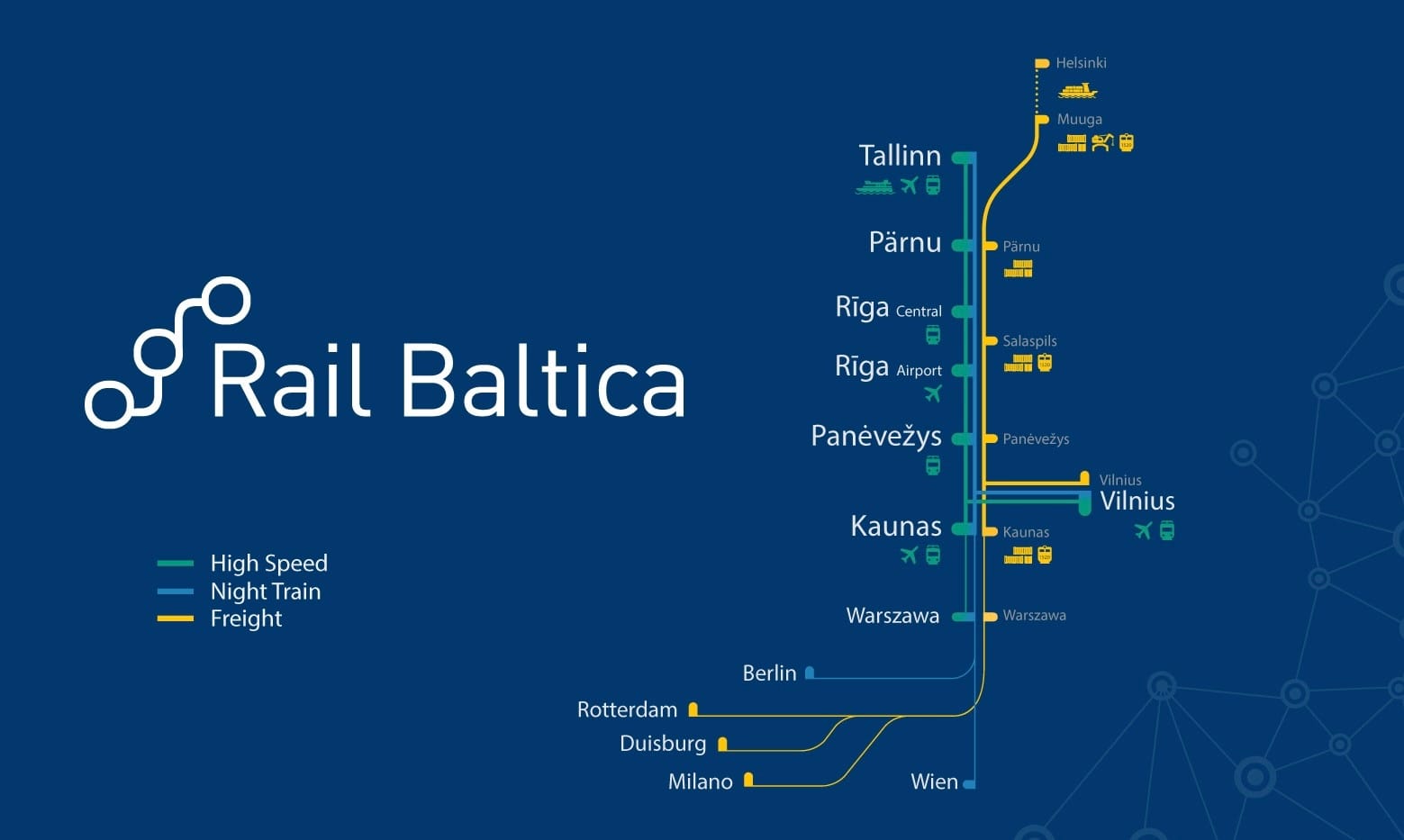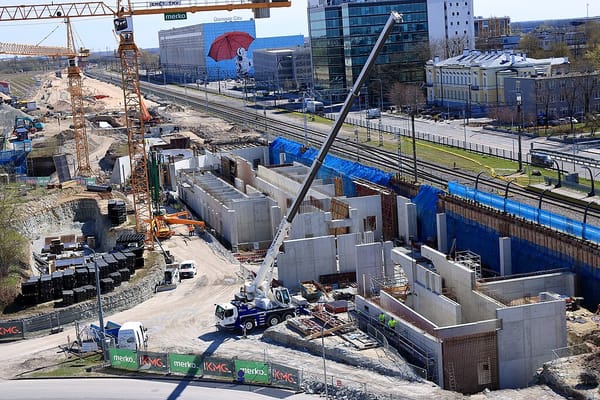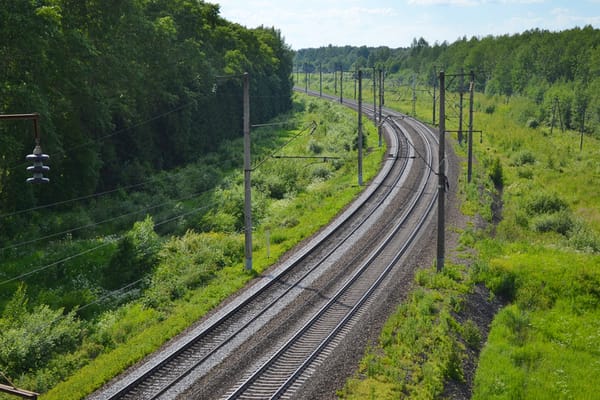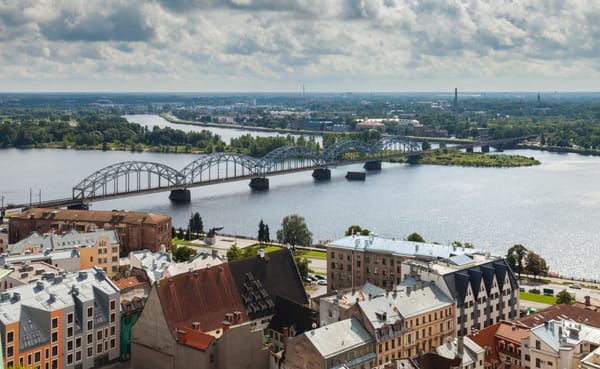
Lithuanian gov’t pulls plug on Vilnius Rail Baltica link
Lithuania has dropped plans to seek EU or national funding for the Vilnius section of the Rail Baltica (RB) project, citing EUR-4bn costs, the Lithuanian Transport Ministry announced on 12 June.
The RB aims to link the capital cities of Tallinn, Estonia; Riga, Latvia; Kaunas, Lithuania; and Warsaw, Poland. The section to Vilnius would bring south-east Lithuania into the EU rail network for the first time since independence.
Currently, both Lithuania and the EU cannot afford a full-scale standard-gauge build between Kaunas and Vilnius, Lithuanian Transport Minister Eugenijus Sabutis said.
Sabutis told TV3 News that “if we were to do it on a full scale, the cost could reach nearly EUR 4bn. That is an enormous amount of money, and right now neither we nor the EU are ready to commit that kind of funding to this particular project.
The main RB corridor will connect Tallinn, Riga, Kaunas and Warsaw via a continuous standard-gauge line, ensuring uninterrupted north-south passenger and freight movement. The Kaunas-Warsaw-Riga-Tallinn route remains viable under the current plans as the core line bypasses Vilnius, with Kaunas serving as Lithuania’s principal RB hub.
While omitting Vilnius limits direct high-speed access for south-east Lithuania, the core RB network’s interoperability and cross-border integration objectives are still met, as the existing Kaunas-Vilnius railway provides domestic connectivity, albeit on a different gauge.

“Replacing (the line) with a European-gauge line will definitely be necessary sooner or later, but probably not sooner," Sabutis said.
Cancellation 'major betrayal' - Vilnius mayor
Vilnius mayor Valdas Benkunskas described the move as “a major betrayal and a turning away from Vilnius”, adding that the Lithiuanian capital is now cut out of a project described by the government as “of particular importance for transport connectivity, economic development and, most importantly, security in the Baltic region".
The core north-south line remains in planning, but Lithuania alone faces a shortfall of EUR 8.7bn, while Baltic-wide costs are EUR 11bn over budget. “Currently, the entire RB project is short of around EUR 11bn,” Lithuanian Prime Minister Gintautas Paluckas said recently.
EU officials have reclassified the RB as essential for European security and resilience. European Commissioner for Transport Adina Valean said, “The RB project used to be a priority, now it is a geopolitical necessity: we need a resilient transport connection for passengers and freight to and from the Baltic States.”
Estonia's European Commission (EC) office head Vivian Loonela said, “We expect a joint proposal from the member states outlining the construction of this core network … it must be completed by 2030.”
However, the head of the Rail Baltica Statyba, Lithuania's RB implementing body, Arenijus Jackus, said in February that the Vilnius-Kaunas section would not be completed by 2030, but added that "the timeline could be accelerated with private sector involvement and the temporary use of variable-gauge infrastructure”.
Local firms, institutions rue development
Public frustration in Vilnius, south-east Lithuania, has grown, with business and civic leaders accusing the government of sidelining local interests for pan-Baltic optics.
Lithuanian logistics and infrastructure firms said sidelining Vilnius threatens the region’s role as a logistics and innovation centre. LTG Infra official Andrius Versinskas said, “Kaunas has attracted major regional logistics companies, and once fast-rail infrastructure is laid, business expansion will accelerate.”
A 2023 China-Central and Eastern Europe (CEE) policy brief found that improved rail links could increase land values by 10-20 % in Vilnius. The Lithuanian tourism and hospitality sectors have called the RB the biggest chance in a generation to integrate southeast Lithuania with EU supply chains.
Neighbours stress importance of RB
Latvian Transport Minister Atis Svinka said, “Latvia is making significant national investments in security, with nearly EUR 2bn already committed and a trajectory toward 5 % of GDP. Speaking at a summit last month, he added, "at a time when our region faces growing geopolitical risks, the RB must be treated as part of Europe’s strategic backbone".
Estonian Infrastructure Minister Kuldar Leis said, “Given today’s security situation, it is clear that we need infrastructure that enables rapid and efficient military mobility. The RB will play a central role in ensuring the movement of allied forces and supplies across NATO’s eastern flank,” he added.
The RB’s future now depends on whether Lithuanian ministries and the EU can reach a funding compromise. If not, Vilnius risks permanent exclusion from the core European rail network, with business, mobility and security consequences for the region.
With EUR 10bn still needed, the journey to complete Rail Baltica by 2030 is far from over, the EC said on 29 May.




